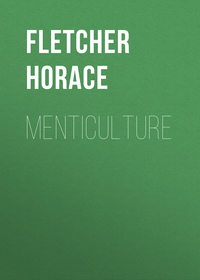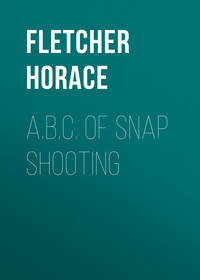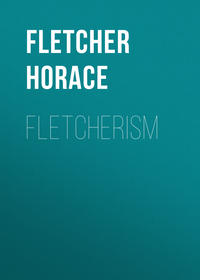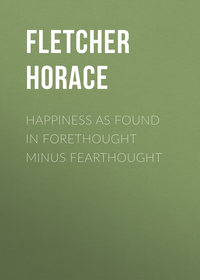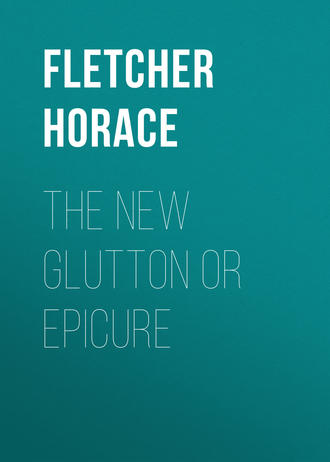 полная версия
полная версияThe New Glutton or Epicure
"At the time of the great Naval Review, or something of the sort – I have forgotten what – a party of us went to the pier of the Southern Pacific Company to see the show. There were Ned H – , and Captain H – , and two other men, and myself, with four ladies. On coming up town we were booked for another engagement, the time for which had not yet arrived. We were in the vicinity of the Hoffman House and drifted in there and into the ball-room. The floor was most tempting and the orchestrion willing. It was too suggestive a combination for the ladies, who were young and fine dancers, and they exclaimed with one voice, 'Oh, how lovely! I wish we might dance.' It proved that I was the only dancing-man among the men. I had been a dancer in my younger days, but I had let up on it since I had become stout. However, by way of a joke and to please the young ladies, I offered to be a partner. My offer was accepted, also as a joke, but the sequel was a surprise. We set the orchestrion going on a Waldteufel waltz, and I grabbed one of the young ladies for a round. Really, I was amazed. I danced as easily as I did when a youngster, and round and round we went. Finally, my partner begged for a rest, so I waltzed her to a seat, and, excited with the revelation of an endurance I did not know I possessed, I grabbed the next lady from her seat and repeated the tiring-out process as easily as in the first attempt. There were yet two ladies fresh and eager to assist in 'doing Uncle Nat up,' and I repeated the performance with them, also, dancing the last to a dead standstill on account of her determined obstinacy. She had to complete the 'doing up' of the old man, or Age would win a battle from Youth, which would never do. Well, to make a long story short, and to get to the illustration. I was warm and ruddy, but I was less fatigued than I remember to have been as a youngster when I had danced for a long time.
"Since then I have not balked at any feat of physical endurance, and I feel as young to-day as my white hair will let me. I have tried to get my friends to chewing their food persistently, and have gained many adherents to your cause, but I have had to stand an immense amount of chaffing meanwhile. I tried to get Mr. H – to chew his bread and milk, but he always laughed at me, and chaffed me constantly when I was with him about my chewing fad. One man, whom I saw much of, and who needed your advice more than anybody else, got so sick of the subject that when I received a letter from you, telling of some new discovery and some new triumph of the cause of chewing, I would attempt to read it to him; but he would not listen, and persisted in calling it rot, although he knew that I had become a remarkably well man, whereas I was formerly a very sick man. Both of these scoffers have gone and I am left, as chipper and as fit as a fiddle new-strung for the music of a happy life. If we don't catch up with Luigi Cornaro on our record it will not be for want of good digestion."
This is a little bit of intimacy that the good Baron Randolph Natili will not object to offer in evidence in our cause; for no one living has a heart and a will to do a favour or spread a benefit more than he. Only yesterday he said, in a burst of enthusiasm, "How is it possible for me to dislike any one, feeling the way I do? I have likes immensely stronger than other likes on account of similar or closer sympathies, but it seems to me now that to really dislike any one that the Creator has made, or anything that he has created, would do violence to the Memory of My Mother."
DR. HIGGINS' CASE AND COMMENT
"Dear Mr. Fletcher:
"You ask me to write you a short account of my experiences with economical nutrition with comments, and a few words about my physical and mental history.
"Previous History: – The best period of health that I can remember in my life was that between seventeen and twenty-one, during the time I was preparing for the medical profession. I had a small breakfast at about 7.30 A.M. and then went up to London to St. George's Hospital, which was about fourteen miles from my home. My parents gave me 2/6 for my midday meal but I fortunately economised and only spent 6d-10d of it on food. After finishing my work I usually arrived home at 5.30 and had a 'meat tea'; this allowed me to devote six hours to reading. During the whole of this period I was in excellent mental and physical condition. I was made house surgeon at twenty-one, obtained my degree in under four years besides obtaining several valuable prizes.
"After this I lived in the Hospital where three meat meals were provided. These I conscientiously ate 'to keep up my strength' during the performance of my exhausting duties. I consider that this period was the commencement of my degeneration. I put on twenty-four pounds in weight and lost much of my mental energy.
"To condense, as much as possible: my strong hereditary tendency to gout with the excessive meat eating, the hurried eating during some three and one-half years at St. George's Hospital, London, and at Addenbrooke's Hospital, Cambridge, resulted in constant suffering from headache, lumbago, rheumatic pains, and all those distressing symptoms known under the generic name of 'goutiness.' After seven or eight years I weighed two hundred and twenty-four pounds and complained of increasing symptoms of gout. I then became a patient of Dr. H – , of London, whose system requires one to abstain from meat, fish, poultry, beans, tea, coffee, in other words, from foods containing uric acid or its equivalent. For about five years, till the end of 1901, when I first met you, I fluctuated considerably in health, on the whole I am bound to say, in a steadily downward direction, till I was overloaded with the excessive weight of two hundred and eighty-two pounds.
"History of Period of Regeneration: – I commenced under your advice, masticating my food thoroughly at the end of December, 1901. After practising this method till the present date September, 1903, I have lost one hundred and four pounds in weight and consider that I have gained very considerably in mental and physical fitness. I prefer to divide this period into two parts: (a) The first eight months. During this time I followed my appetite, but with a strong mental bias in favour of keeping up as nearly as possible to the daily 'physiological ration' of nitrogenous food. I lost notwithstanding some sixty-four pounds in weight in spite of having an inordinate appetite for butter, and generally taking two pints of milk daily. During this period I undertook some very severe work in the Laboratory of Physiological Chemistry, with the object of trying to devise some method of measuring the extent of a person's departure from their optimum health. This led almost unconsciously to a stronger mental bias in favour of prescribing the amount of food one should eat, and to a certain number of experiments in feeding. Towards the end of this period I got rather exhausted in consequence of my severe work and complained of occasional headaches. Following the suggestions of some friends I added fifty grams of casein to my daily diet for two or three weeks. This was followed by a return of rheumatism and considerable sickness and inability to work. (b) The subsequent six months. I resolved to devote this period to a careful study of my desires for food – to take no notes – to make no experiments – in short, to allow my body to run itself, and to try to make my brain interpret the wants of the body. I had moved for the purpose of this experiment into a small house, with a boy and a woman who came daily to clean the house – (I mention these details because practically one finds that a woman has usually such quick sympathy about matters concerning food, that their agitation and fears are enough in themselves to cause you to modify your diet). I only kept bread, butter, and milk in the house, all other foods I was obliged to send for, and if I required a dish to be cooked, I first learned how to do it myself and then taught the boy. I had no fixed times for meals, and did not have a table laid, my food always being brought up on a tray; usually I did not interrupt the work I was doing. I deliberately adopted all these precautions because I had become aware by experience of the extraordinary influence suggestion, and other mind influences, such as habit, had in one's selection of food and the amount one ate. During the first two months in conscientiously eating what I wished, as much of it as I wanted and when my appetite demanded food, my desires were very irregular, ranging over meats and fish, (occasionally) chocolate, sweets, cream, cheese, butter, milk, bread, potatoes, oranges, bananas, sugar, etc., but during the final period my desires were much more simple and regular, confining themselves to bread, Gruyère cheese, butter, cream, bananas, potatoes, occasionally milk. During and subsequent to this period I have become convinced that provided you eat your food slowly and follow your appetite, without guidance from any other knowledge whatever, one gets marked preferences for simple foods with increasing health and happiness, the contentment that comes from the inestimably valuable possession of simple desires.
"Comments on the System: – The great attraction the system has for me is its frank admission that: (1) One knows practically nothing of those chemical processes that occur during digestion. (2) The guidance for the conduct of life afforded by such vague phrases as 'the collective wisdom of mankind' leave one on the most superficial examination in a state of great doubt, to say the least of it. (3) The guidance afforded by the dogmas of science are open to the most disquieting criticism. (a) In the prescription of method without a knowledge of the mysteries of digestion. (b) In those observations on insufficient standards of mental and physical optimum efficiency, and of short periods of observation based solely on nitrogenous equilibrium and output of work that you have already shown to be fallacious and variable. (c) In short, that one can say that none of the physiological dogmas based on chemistry are not open to criticism.
"If this is admitted, and the choice of the quantity and quality of food thrown on taste and appetite, we are at once provided with a natural means of ascertaining the body's actual wants from day to day. The phenomena that have resulted from the more thorough insalivation and mastication of food can only be described as remarkable and of the highest importance for the progress of that most important of all sciences, the right conduct of life. The great advantage of finely dividing the food in the mouth so as to present as large a surface as possible for the action of the intestinal juices, is obvious when one reflects on the rapidity with which bacteria can and do act on pieces having a smaller area in consequence of their larger bulk. When one reflects that Dr. Mott attributes the main cause of insanity to the absorption by the body of the cleavage products produced by microbes in the intestines, and the increasing recognition of such poisons in the causation of chronic disease and disturbances of health, this factor alone would afford an explanation of some of the phenomena induced by the practice of economical nutrition.
"A method having the results that this has it need scarcely be said is revolutionary; all one's preconceived notions of the conduct of life are found to be based on grounds open to grave criticism and it throws a great responsibility on all those concerned in its study to endeavour by all the means in their power to present a more completely demonstrated and unanswerable case to those who are responsible for the world's guidance in these matters, with as little delay as possible,
"Yours faithfully,
Hubert Higgins, M. A. Cantab.M.R.C.S., L.R.C.P."Late House Surgeon to St. George's Hospital, London, and the Addenbrooke's Hospital, Cambridge. Demonstrator of Anatomy to the University of Cambridge and Assistant Surgeon to Addenbrooke's Hospital."QUARANTINE
THE NECESSITY OF PROTECTIONNote: A paper, read before members of the Unity League and other guests of Mr. and Mrs. William S. Harbert, at Tre-Brah, Williams Bay, Geneva Lake, Wisconsin, in August, 1898.
It is pertinent to the subject of this book, but was written when the investigations described herein were just beginning.
Progress of Civilisation is accelerated by constantly extending systems of individual, moral, social and sanitary quarantine.
It is not what man adds, for he can add nothing, but what he prevents, that aids growth.
Man creates nothing, but he assists Creation by removing deterrents to growth. Growth is spontaneous, constant and ever stronger if obstructions are removed. Creation does all the growing, but cultivates nothing; the seed falling upon good soil or upon stony waste without other direction than that given by the caprice of the winds.
On the other hand, Man is the only cultivator in Nature, and at the same time he can add nothing to growth – to Creation.
Visible, or conscious, growth consists of cell building or thought producing. Man never has created a cell, neither has he been able to determine the origin of a thought; yet, he is a necessary factor in evolution and a prime factor in cultivation, which is civilisation.
Man removes deterrents to growth. Nature "does the rest."
Thought and cell creation are spontaneous and are never-ceasing if all obstructions are removed from about them. Civilised man places a quarantine against the enemies of growth, of progress, and of harmony, and thereby promotes civilisation.
Man is, therefore, the Chief Assistant to Creation, the Architect of Civilisation and a Full Partner with Nature in Evolution.
This distinction, adequately appreciated, lifts Man above the animal plane and gives him a place among the gods; his material form, composed of muscle, hands, powers of locomotion and speech, being but tools with which to harness and coöperate with the other forces in Nature, under the direction of the godlike attribute of the Mind, in the removal of deterrents to free growth, and the cultivation of that Harmony which is the symbol of God.
Having assumed as an hypothesis that Man is Full Partner with Nature in Evolution; and having discovered his proper function in the "Division of Labour" in Nature, it is time for each of us to analyse the conditions which environ us as Man units, select those which seem to be useful to our scheme of construction and harmony, declare all deterrents to the growth of our selection to be weeds, and then proceed to remove them without delay, first, by pulling those which now exist, and following that by establishing strict quarantine against them.
I can teach only that which I have learned, and pronounce good only that which has led to happiness. I will therefore note the progress of my own discoveries and describe those which have brought increasing happiness, in order that they may serve as beacons and monuments to such as may seek the same goal along the same lines of inquiry.
The first forty-five years of my present life were spent in seeking happiness by means of personal accumulation. Money, friends, distinction, acquaintance with art in all its various expressions, lands, luxurious homes in favoured localities, pictures, rare porcelains, lacquers and other possessions, isolated for my own use, and for the enjoyment of chosen friends, seemed to be the necessary desiderata of happiness.
In turn, all of these came to me in sufficient abundance to give, at least, a taste of their quality and their efficacy in promoting happiness; but, in the midst of them were always obstructions to unhampered enjoyment, increasing with possession and accumulation of the coveted means, and constantly mocking, as with a mirage, the ultimate ideal desired.
During these forty-five years of quest of happiness there were constantly appearing above the horizon of my search flashes of hope, leading in new directions, which proved in turn to be but will o' the wisps, until the night – the morning – of my awakening, as related in my book "Menticulture."
It was then, for the first time, I heard that it was possible to get rid of anger and worry, the bêtes noires of my existence, which were, as I then believed and as I now know, the dreaded barriers between me and perfect happiness; not because the mere removal of these particular deterrents to happiness will accomplish happiness, but because the certain result of the removal of any principal mental obstructions leads to the disappearance of contingent errors, and permits freedom of growth of the elements of true happiness.
It is proper to state here the definition of happiness which is the result of my progressive quest. There is only one quality of true happiness, as there can only be one kind of quarantine, and the former is dependent on the latter. If both are not perfect, both fail. True happiness is the evidence and fruit of conscious usefulness, and quarantine against obstructions to normal altruistic energy is the best means of attaining happiness.
In view of the establishment of the status of the Man unit in the Nature-Man partnership, the above definition and assertion may be extended to declare that there can be no genuine happiness short of usefulness in assisting other units to be strong and useful in the partnership of which each is a member.
True happiness cannot exist if there is present an element of indifference.
Next to destructive aggression, indifference, which leads to neglect and waste, is the worst fault that a member of the Nature-Man partnership can be guilty of. Neglect nothing that will aid growth in any useful form, and happiness will surely follow, for Nature and the God of Nature will "do the rest."
In qualifying for the Nature-Man partnership, it is of first importance that our personal equipment should be understood and cared for so as to give us the greatest strength. The body may appropriately be likened to an electric power plant – a Mind-Power Plant; the body being the engine, the stomach the furnace, the arteries and veins the boiler tubes, the blood in circulation the steam, the brain the dynamo, and the mind electricity.
Mind is the all-important factor of our equipment, for it is the commander that will lead and direct better and wiser than we can now imagine if we allow it a chance to act with freedom.
To secure this freedom we must know its habitat, its requirements, its nourishment, and learn to allow it to recharge itself sufficiently and to concentrate itself on its chosen usefulness without imposing upon it also the drudgery of useless work. This must be done with the same idea of economy that a chef is relieved of the drudgery of washing dishes and emptying slops.
According to Dr. Edward Hooker Dewey, a pharmacist, army surgeon and tireless investigator of forty-five years' experience, whose revelations have been before the medical profession of the world for many years without a single challenge, the brain is a dynamo which accumulates energy during sleep, and uses it during the waking hours of its possessor.
The brain manages everything for man that he accomplishes. It brings messages from the Creator, which are sometimes called intuition, sometimes inspiration, and by various other names. Emerson calls these messages the "Over-Soul." My own appreciation of the attribute that distinguishes the Spiritual Man from the animal man is better satisfied by the name "Spiritual Cerebration," which I have defined in my book "Happiness" as: "Intelligence not derived from experience, principally obtained during sleep, and, seemingly supernaturally clear to consciousness on awaking in the natural manner."
The brain also directs all action, and, with encouragement, will take up the messages from the Creator and analyse, arrange, and develop them into useful accomplishments, and then file them away in the archives of the memory as additions to the equipment which is necessary to greatness in the pursuit of usefulness.
Dr. Dewey gives the bill of fare of the brain in seeking its own nourishment, and also describes the work it performs in transforming the fuel we supply it with into the tissues on which it feeds.
This is undoubtedly a very important discovery and locates the source of strength and teaches how to conserve it.
I will not give the technical bill of fare of the brain, for you would not remember it better than I do, but it is all composed of tissues of the body, fat predominating to the quantity of ninety-seven per cent, but the important announcement is that neither the brain itself nor any of the nervous centres diminish during consumption of tissue, neither do they lose any of their power, even in cases of what is called starvation, up to the point of death, when all of the fatty and muscular tissues of the body are wasted away, leaving the brain and nerve centres to flicker and go out, as a candle does, brighter than usual with the parting flash of their brilliancy.
Dr. Dewey gives President Garfield as an illustrious example of proof of the accuracy of his deduction. The martyr President lived eighty days without the addition of an ounce of nutriment to his life, carried the usual clearness of mind to the last moment, and passed on only when the last muscular tissue had been consumed by the brain.
Dr. Dewey's assertion that starvation, so-called, is never a cause of disease, and never dangerous to life and health until there is no more tissue left on which to feed the brain and other nerve centres, was published some years ago and I have the authority of the Doctor himself that his contention has not been once disputed by the medical profession. Three eminent English physicians, Drs. A. M. Haig, George S. Keith and A. Rabigliati, and many American physicians, have experimented with what is called starvation for the cure of chronic diseases which have their origin in excess of inharmonious deposits caused by overeating or careless eating. The results in all instances recorded have been successful in modifying or curing the disease.
When patients have understood that they were suffering no injury from not taking food they have ceased to have hunger cravings. These hunger cravings usually come from fear or from disorder caused by fermenting food in an overloaded stomach.
We can, then, on undisputed and practical authority, treat craving for food or drink as a disease and therefore not rational, and starvation as merely drawing upon the stored fuel – fatty tissue – by the dynamo of the brain, restorable at will at any time before complete exhaustion, without injury – with benefit, in fact – to the machinery of the body.
The brain must first turn food into tissue, and then derive its own nourishment from the tissue. If the right quantity of nourishment can be introduced into the stomach, if the quality is of the right kind, and if it is fed into the furnace of the stomach with relatively the same wisdom that a competent fireman uses in feeding his furnace, the brain is required to use the least possible effort in this direction, and has its stored energy available for directing other useful action and serving the partnership which employs it with an efficiency, the possibility of which may be well illustrated by the herculean accomplishments of the battleship "Oregon" in the late war in steaming thirteen thousand miles and engaging in a great battle without a stop or an accident, and without "starting" a rivet.
I will not tell you much of what Dr. Dewey has revealed, because I want you to read all he has written,18 as well as the books of the English physicians mentioned, but I must say this much: Very little digestion goes on during sleep, and, whether it does or not the brain has from sixty to one hundred days' nourishment stored up within each of us, and can feed on that without inconvenience to us, except in the form of what is called habit craving or imaginary hunger, for the whole of that time. A person who has been without food for an unusual time, if he does not gorge his stomach when the first opportunity of breaking the fast arrives, is not only better for the rest the brain has had, but the health does not suffer in any way.
It is, then, no serious deprivation to ask a person to go without what we call breakfast – the getting-up or habit-craving – and give the brain a chance to clean up the remnants of the last day's supply of food fuel, and express new desires in an earned appetite. There is available, on waking from sleep, a fresh charged brain ready to serve its proprietor with great efficiency. Incidentally it has to do some "chores," rake out the clinkers, dispose of the ashes, relieve the grate bars, attend to any little repairs, brush out the chimney and generally get ready for the work of another day.


